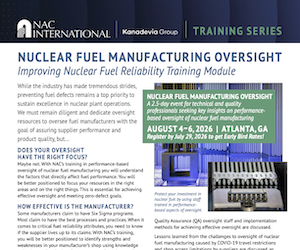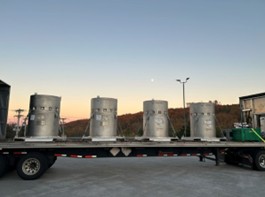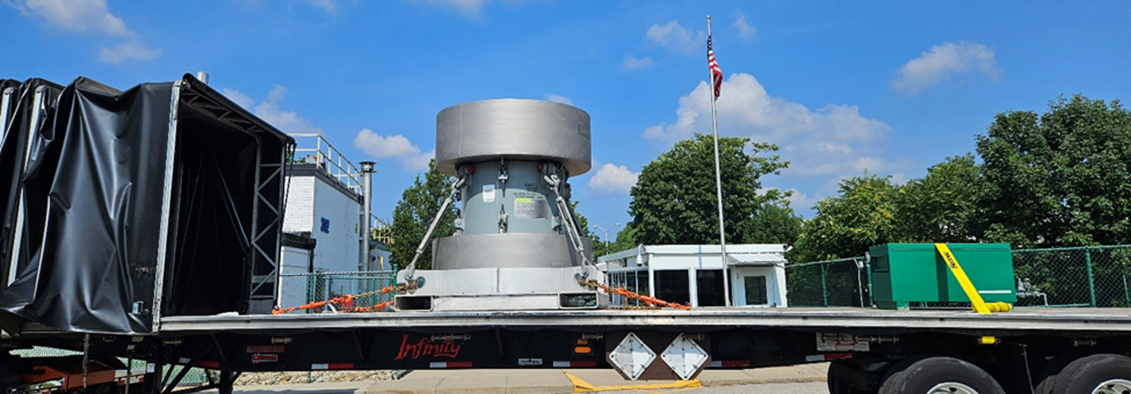Nuclear Fuel Manufacturing Oversight
Improving Nuclear Fuel Reliability Training Module
August 4-6, 2026 | Atlanta, GA
 While the industry has made tremendous strides, preventing fuel defects remains a top priority to sustain excellence in nuclear plant operations. We must remain diligent and dedicate oversight resources to oversee fuel manufacturers with the goal of assuring supplier performance and product quality, but...
While the industry has made tremendous strides, preventing fuel defects remains a top priority to sustain excellence in nuclear plant operations. We must remain diligent and dedicate oversight resources to oversee fuel manufacturers with the goal of assuring supplier performance and product quality, but...Does Your Oversight Have the Right Focus?
Maybe not. With NAC’s training in performance-based oversight of nuclear fuel manufacturing you will understand the factors that directly affect fuel performance. You willbe better positioned to focus your resources in the right areas and on the right things. This is essential for achieving effective oversight and meeting zero-defect goals.How Effective is the Manufacturer?
Some manufacturers claim to have Six Sigma programs. Most claim to have the best processes and practices. When it comes to critical fuel reliability attributes, you need to know if the supplier lives up to its claims. With NAC’s training, you will be better positioned to identify strengths and weaknesses in your manufacturer’s shop using knowledge gained regarding fuel performance, manufacturing, quality, and Six Sigma statistical tools and techniques.What Does the Training Cover?
Nuclear fuel is complex and the relationships between design, manufacturing, and performance can be complicated.To address this, the 2.5-day training begins by reviewing basic fuel mechanical design, materials, and performance considerations. It uses this foundation and draws on proven methods to define the elements and approach for building a performance-based oversight program. Manufacturing processes are reviewed in detail using flow diagrams, and performance-based attributes are identified and ranked. Six Sigma tools and other statistical techniques used to evaluate equipment capability and inspector/inspection effectiveness are discussed. Methods for handling and trending non- conformances are reviewed. The roles of Engineering and Quality Assurance (QA) oversight staff and implementation methods for achieving effective oversight are discussed.
Lessons learned from the challenges to oversight of nuclear fuel manufacturing caused by COVID-19 travel restrictions and shop access limitations by suppliers are discussed, as well as concepts, techniques, and considerations for remote monitoring.
Who Can Benefit from the Training?
Engineers, technical personnel, and QA oversight staff at the manager or individual contributor level that are involved with nuclear fuel design, manufacturing, receiving- inspection, handling, performance, and reliability will benefit from this training. The training is applicable to individuals at all levels of experience, from new hires to your most seasoned nuclear professional.
Course Contents
Introduction to Performance-based Oversight
- Regulatory basis for oversight
- Approaches to oversight
- Performance-based concepts/ history/program development
Fuel Mechanical Design Considerations
- Fuel assembly component basic functions
- PWR/BWR fuel assembly designs
- Safety classification determination
- Pertinent design criteria and sources
- Materials and irradiation effects
Fuel Performance Considerations
- Fuel failure causes and mechanisms
- Non-failure performance issues
Performance-based Oversight Program Development
- Performance-based approach
- Ranking system for key attributes
- Key performance categories
- General manufacturing processes and equipment
- Process details/process flow maps
- Identification of critical attributes (activities/processes/components)
Statistical Techniques in Manufacturing
- Basic statistics and sampling
- Process capability
- Inspection and measurement system analysis
- Statistical process control
- Acceptance sampling plans
Nonconforming Process or Product
- Evaluation and disposition
- Trending and Corrective Action Program
Approaches for Implementation
- QA Programs and 10 CFR 50 Appendix B primer
- ISO gap analysis
- Split scope and Interfaces
- Control of suppliers
- Roles for QA and technical staff
- Surveillance planning
- Remote monitoring considerations
- Surveillance implementation
- Graded approach
- Joint/shared approach
Location
Training Seminar will be hosted at the NAC International Corporate Office:2 Sun Court, Suite 220
Peachtree Corners, GA 30092
Nearby Hotels
Cost to Attend
The cost to attend the 2.5-day seminar is $3,250. Early bird pricing of $3,000 is available up to five weeks in advance.Register Now
Contact
Dave Culp, Vice President of Consulting+1 678 328-1254 |




